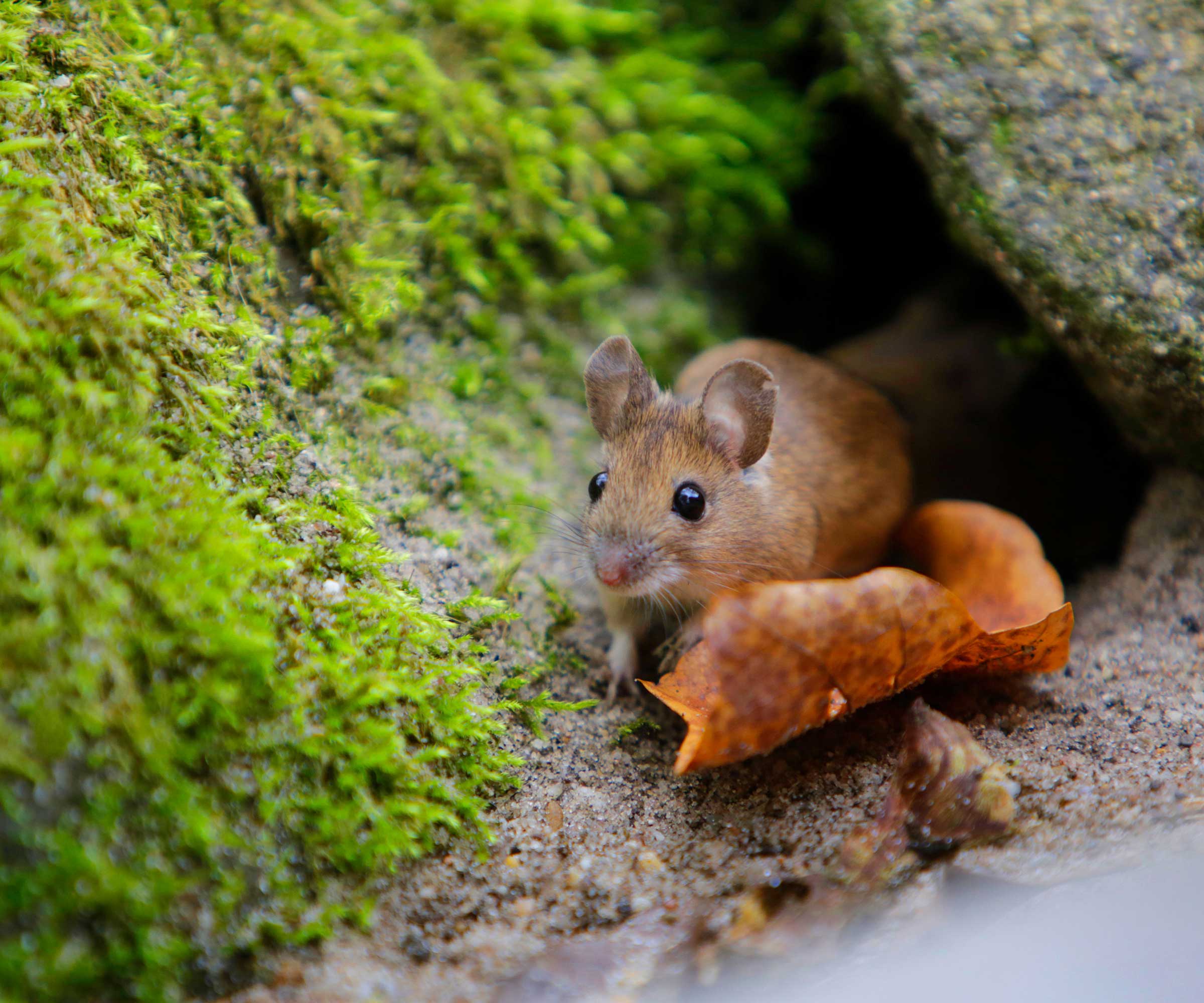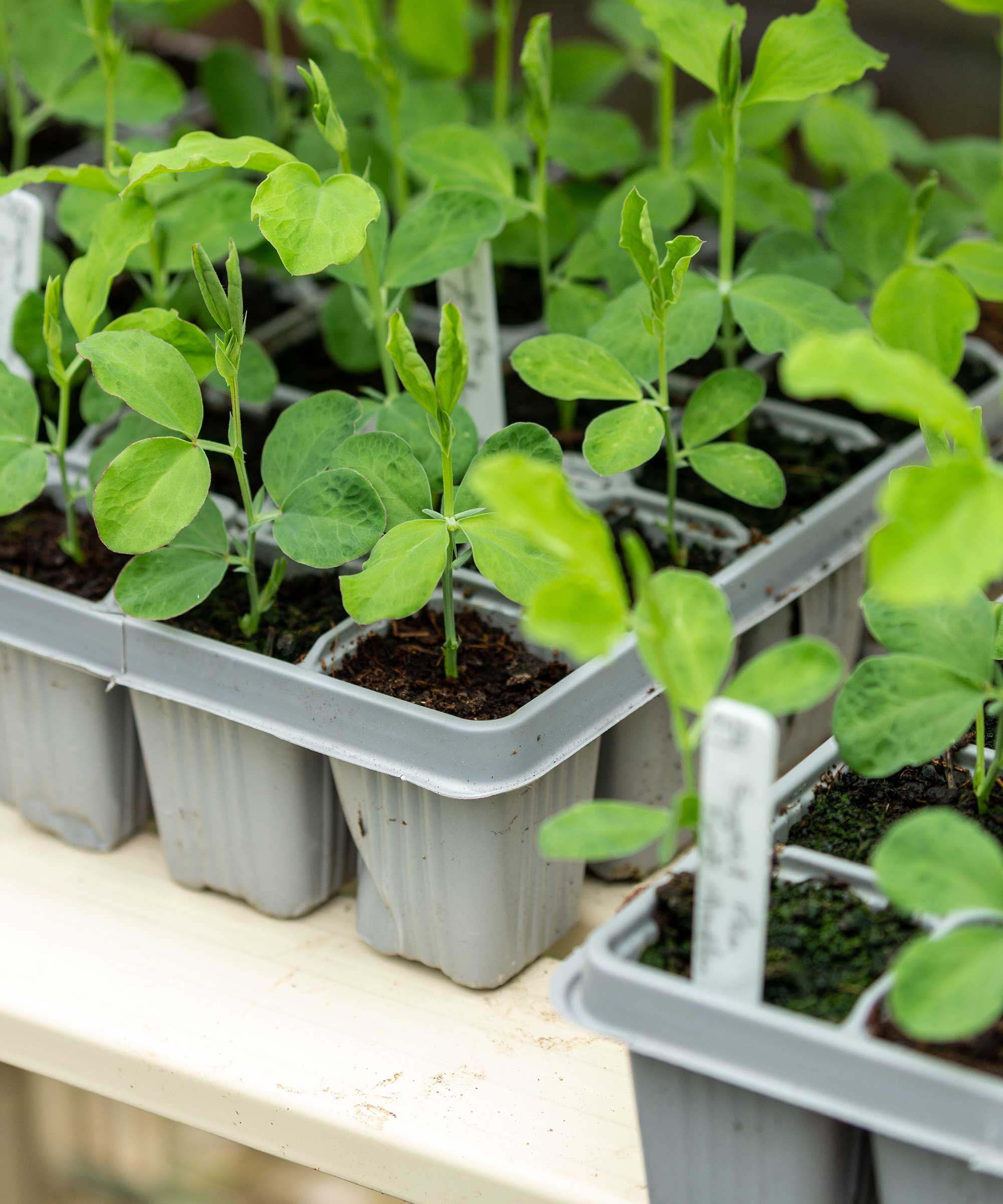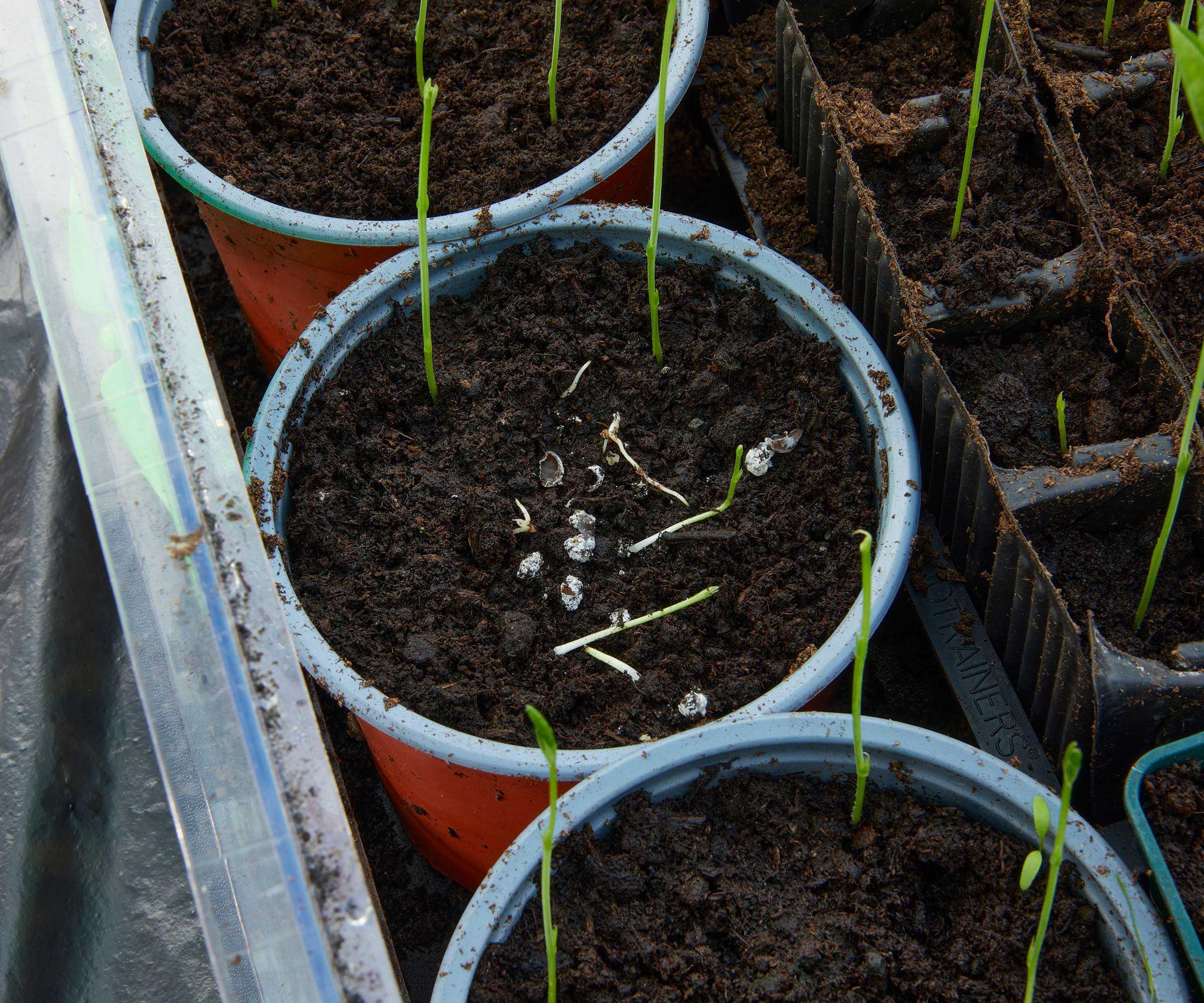How to stop mice from eating your sweet peas – so you can grow an abundance of blooms
Mice are notorious for nibbling precious sweet pea seedlings, so we've found three ways to prevent the problem


Design expertise in your inbox – from inspiring decorating ideas and beautiful celebrity homes to practical gardening advice and shopping round-ups.
You are now subscribed
Your newsletter sign-up was successful
Want to add more newsletters?

Twice a week
Homes&Gardens
The ultimate interior design resource from the world's leading experts - discover inspiring decorating ideas, color scheming know-how, garden inspiration and shopping expertise.

Once a week
In The Loop from Next In Design
Members of the Next in Design Circle will receive In the Loop, our weekly email filled with trade news, names to know and spotlight moments. Together we’re building a brighter design future.

Twice a week
Cucina
Whether you’re passionate about hosting exquisite dinners, experimenting with culinary trends, or perfecting your kitchen's design with timeless elegance and innovative functionality, this newsletter is here to inspire
Q: I decided to grow sweet peas from seeds for the first time last fall. I planted the seeds in trays to overwinter in my greenhouse, but to my dismay, most were quickly destroyed by mice. I am going to try again this year, but how can I prevent the problem from happening again?
A: Growing sweet peas fills us with anticipation for plenty of fragrant and beautiful summer blooms. Unfortunately, however, mice are a common problem for sweet peas grown from seed, which leads to disappointment for many gardeners.
To put it simply, a warm and dry greenhouse is a tempting place for mice during the winter months, especially if there are juicy seeds and seedlings available to feast on. But it's not just an issue for sweet peas sown indoors: mice are notorious for stealing seeds that are planted directly in the ground, too.
However, with a few precautions put into place, your seedlings should be able to stay safe from hungry interlopers.

Sweet peas are a favorite summer bloom
3 ways to protect your sweet peas from mice
Try these tips to deter mice from your sweet pea growing station.

Mice can quickly damage your sweet pea seedlings if given the chance
1. Create physical barriers
'Creating enclosures or cages that cover the plants is an effective method, but ensure there are no large openings as mice can easily slip through,' says Autumn Hilliard-Knapp of Perfect Plants Nursery.
If you're sowing them outdoors, place hardware cloth or mesh wire around your sweet pea bed, suggests pest-control expert Nicole Carpenter. 'Ensure that it is buried a few inches into the ground to prevent mice from burrowing under it,' she adds.
Design expertise in your inbox – from inspiring decorating ideas and beautiful celebrity homes to practical gardening advice and shopping round-ups.
Sweet peas sown in a greenhouse can also be protected this way: simply wrap the trays or pots with a fine-mesh wire netting.
Note that you can also use a heated propagator with a lid to encourage germination. The seeds will be protected from pests while they're in there, but the seedlings should be removed once they are growing, to prevent them from overheating and becoming spindly.

Autumn is a horticulture specialist and marketing professional at Perfect Plants Nursery. With four years of experience in the horticulture industry, she has developed a passion for helping people create beautiful indoor and outdoor spaces to enjoy. Her expertise in horticulture encompasses a broad range of activities, including plant care and selection, landscape design, and maintenance.

Nicole Carpenter started working at Black Pest Prevention when she was in high school. She continued working there while attending N.C. State University and eventually became the CEO. Black Pest Prevention is a company that helps with pest control in Charlotte and serves both North and South Carolina.

Sweet pea seedlings are a tempting treat for hungry mice
2. Start your sweet peas on a windowsill in your home
If you have the space (and you're sure your house is mouse-free), sow your sweet peas on a sunny windowsill. The seedlings can then be planted out into their final growing position once they've grown nice and sturdy and the weather has warmed up in spring.
I've personally had great success with this method. Just ensure the seedlings get enough light, as otherwise they will grow leggy. On this note, remember to pinch out the tips, too, to encourage bushier plants.

Sweet peas can be started on a sunny windowsill indoors
3. Use repellent scents strategically around your sweet peas
According to Nicole, mice don't like the strong scent of garlic, onions, or mint. She suggests planting these edibles strategically in areas where you're growing your sweet peas. 'This is a great natural deterrent,' she says – plus, it will give you some tasty crops to enjoy.
If you're trying to keep them away from your greenhouse, you could also consider using peppermint oil. For instance, try soaking balls of cotton wool in it and placing them around your sweet pea seed trays. Alternatively, you could spray a mixture of water and a few drops of the oil onto the plants, suggests Autumn.
Another option is to sprinkle crushed garlic around the base of the seedlings, Autumn says. There are also repellents that you can buy online, such as Victor's Scent-Away Natural Rodent Repeller, available from Amazon, which could be placed nearby.
Top tip: Mint is also said to be a mosquito-repellent plant.

Mice can nibble the leaves from your seedlings, as well as the seeds themselves
FAQs
Can I use mouse traps to protect my sweet pea seedlings?
Live mouse traps are available, which merely trap the animals rather than kill them. You can then release the caught mouse into a safe environment away from your home. However, these types of traps must be used properly. You will need to check them very frequently, and release the animals quickly, as being trapped can still cause them great distress. It's also important to disable the traps when they're not in use.
Once your sweet peas are growing outdoors, remember to protect them from slugs, too. They're another garden pest that's renowned for eradicating leafy seedlings overnight.

Holly started writing about gardening five years ago, and she is a regular contributor to Homes & Gardens. She has also written many gardening features for Woman & Home and Real Homes, too. She has previous experience as a professional gardener, where she helped to plant and maintain private gardens. Holly has also looked after allotment plots over the years and loves to grow her own flowers and veggies from seed. In her spare time, she enjoys visiting local gardens, botanical drawing, and tending to her ever-growing collection of houseplants.